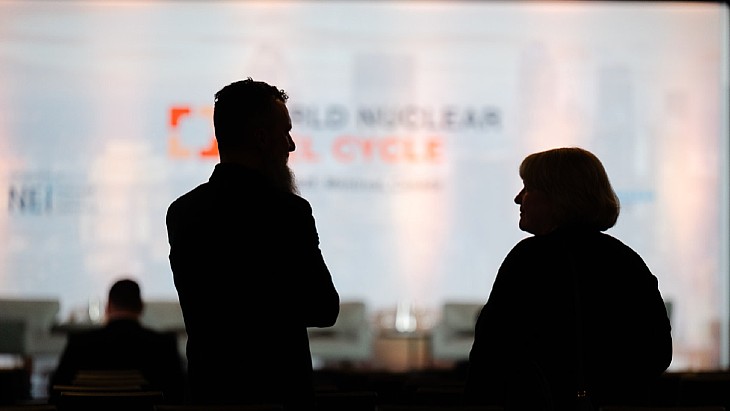UK funding to ensure Ukrainian nuclear fuel supplies
.jpeg)
The loan guarantee will be made through UK Export Finance (UKEF) - the UK's export credit agency. The funds will be released by partner banks once financial terms are agreed.
Urenco has been a supplier of enrichment services to Energoatom and Ukraine since 2009. The support announced today will enable the further supply of services, with a significant portion of the deliveries coming from the UK.
"The support will strengthen Ukraine's energy security and further isolate Putin by helping the country maintain its independence from Russian nuclear fuel," the UK's Department for Energy Security and Net Zero said in a statement.
The announcement came as UK Energy Security Secretary Grant Shapps visited Kiev and met with senior government ministers and energy company leaders, including Energoatom President Petro Kotin.
His visit comes just two months after the UK hosted the Ukraine Recovery Conference in London, where international commitments for Ukraine's recovery and reconstruction topped USD60 billion. Once provided, the latest support will bring the total of the UK's non-military assistance to Ukraine to nearly GBP5 billion.
During the visit on 22 August, Shapps visited a power station that has been badly damaged by Russian bombing and is now undergoing repairs.
"Being here on the ground, it's truly remarkable witnessing first-hand the sheer courage, resolve and gritty determination of the Ukrainian people," Shapps said. "Putin has used energy as a weapon of war: the action today to support nuclear fuel deliveries will help Ukraine end their reliance on Russian supplies and bolster their energy security."
"Since the start of the invasion, we have provided support to our customer, Energoatom, and its employees, and increased our supply of nuclear enrichment services to help provide energy independence and security of supply in Ukraine," said Urenco CEO Boris Schucht. "We are actively discussing longer term supply with Energoatom and are ready to play our part in supporting their future. We have the capacity to meet current demand for uranium enrichment services and options to increase this to provide an enhanced offering globally.
"Collaboration from governments, such as in the UK with this agreement, is critical to facilitate this, as well as with customers and the wider nuclear industry, and we will continue to do all we can to play a valuable role."
The announcement follows the G7 Energy Ministers' meeting in April this year in Sapporo, Japan, at which the UK, USA, Canada, Japan and France agreed a new alliance to "support the stable supply of fuels for the operating reactor fleets of today, enable the development and deployment of fuels for the advanced reactors of tomorrow, and achieve reduced dependence on Russian supply chains".
Ukraine has 15 operable nuclear reactors at four plants - Khmelnitski, Rivne, South Ukraine and Zaporizhzhia - that generate about half of its electricity. The Zaporizhzhia plant has been under Russian control since early March 2022. All reactors are Russian VVER types, two being upgraded 440 MWe V-312 models and the rest the larger 1000 MWe units - two early models and the rest V-320s. Since the conflict started the number of units operated has changed over time, with reactors put online and taken offline depending on the situation around the plants and the stability of external power supplies.
Energoatom had been seeking to diversify its sources of nuclear fuel for its nuclear power plants in recent years, a process which has been accelerated since the war began in February 2022, with the company saying it will switch all of its reactors away from Russian fuel and make a full shift to using Westinghouse fuel, supplied from the company’s fabrication site in Västerås in Sweden.
_49098.jpg)
_57190.jpg)
_70526.jpg)
_75453.jpg)






_50521.jpg)

